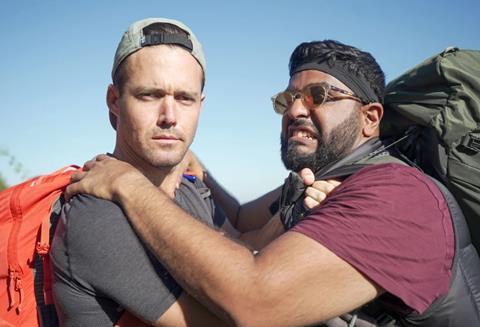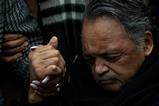Our world cannot afford to ignore faith, argues Chine McDonald. We need more religion in media and broadcasting, not less

One of the best jobs I ever had was on a local newspaper. After gaining a degree in theology and training as a journalist, I convinced a hard-nosed newspaper editor that on top of my trainee news role, what his paper really needed was a religion reporter. It was the perfect career in which to use my skills and interests and – just about – make a living.
Reading, Berkshire had gritty crime stories, a thriving local political scene, a great university and brilliant schools. But what most excited me was the religious demographic of the area – churches of all denominations, mosques, temples and gurdwaras. In among the mundane and bizarre – such as the man who claimed he saw the face of Jesus on a tile – I got to meet some wonderful people and tell some amazing stories. From highlighting the ways in which Christians were being salt and light in their communities, to reporting on a historic visit to Auschwitz by UK faith leaders including then Archbishop of Canterbury Rowan Williams and the late rabbi Jonathan Sacks, to interviewing Rev Jesse Jackson.
This was the early 2000s and there was an assumption that religion was on its way out. The secularisation thesis was widely held at the time, but has since been abandoned within academia. As sociologist Peter Berger says: “The world today is as furiously religious as it ever was.” Pew Research suggests that 84 per cent of the world is religious, and this might rise to 90 per cent by 2050.
Our world cannot ignore religion, which is why we need more of it in media and broadcasting, not less. Religion is there in the Israel-Palestine conflict, the Russia-Ukraine war and the US elections. It is intertwined in issues of nationalism and freedom in places from Nigeria to Indonesia to North Korea.
People are searching for the spiritual
The biggest issues of our day require an understanding of the history, motives and practices of religious communities. We can’t expect everyone to do a theology degree, or rely on religious education in schools. So we need to safeguard religion in the media, because this is where it can be properly understood and misconceptions addressed.
In the latest series of the BBC’s Pilgrimage, former Made in Chelsea star Spencer Matthews is told (by fellow pilgrim and Muslim Eshaan Akbar) that Jesus was a real person, not a fictional character like the tooth fairy. That truth impacts him deeply. Christians know that our faith isn’t just about head knowledge, but through radio, TV and film, we get to see how people’s understanding moves from head to heart and how they can step into profound revelations about themselves and God.
We can’t assume that those at the top of media organisations or in government will understand this. Earlier this year, the Media Bill went through parliament. This removes obligations on public service broadcasters to provide programmes exploring religion or belief.
As Christians, we love to see our own faith showcased, explained or celebrated, but that also means creating that opportunity for all faiths. Our world is still under the illusion that it is secular, yet people are searching for the spiritual and non-material, while sometimes also rejecting the place these things come from.
We need good religion stories in print, on our airwaves and TV screens to point the way to God.






































No comments yet